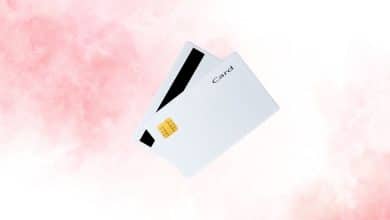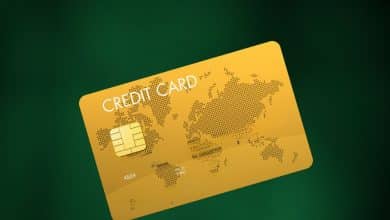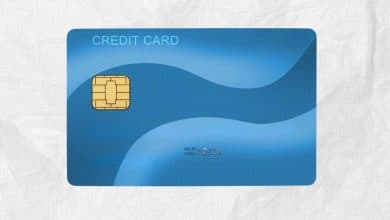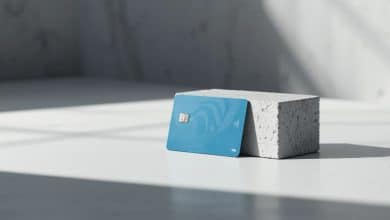Tips for Earning Rewards and Avoiding Interest on Your Credit Card
Understanding credit card rewards and avoiding interest is key. Many people want to earn rewards without paying high interest. This article will share tips for earning rewards and avoiding interest on your credit card.
First, learn about credit card terms. Make sure your spending matches your financial goals. This is a big step in using your card wisely.
Using your card responsibly means paying on time and managing interest. Try to keep your credit use under 30% and pay off balances each month. This way, you can earn more rewards without getting into debt. This guide will give you tips to improve your credit card use and keep your credit score healthy.
Understanding Credit Card Rewards
Credit card rewards come in many forms, appealing to different spending habits. You can get cash back, travel points, or discounts at stores. Cash back cards give you a percentage of your spend back, great for those who shop a lot.
Travel points let you earn points for flights, hotel stays, and more. They’re perfect for those who travel often.
Each credit card issuer has its own rewards, tailored to different needs. Some cards offer more points for dining or groceries. Knowing how to match your spending with rewards is key to getting the most out of your card.
When picking a credit card, think about what you usually buy. If you eat out a lot, a card with restaurant rewards might be best. Or, if you fill up on gas often, a card that rewards gas purchases could be better.
- Rewards credit cards offer a range of incentives including:
- Airline miles for frequent flyers
- Gift certificates for retail stores
- Cash back on everyday purchases
For those new to credit card rewards, knowing the different types can make a big difference. By choosing wisely and using your card smartly, you can enjoy the benefits of responsible credit use.
How to Avoid Credit Card Interest
Learning how to avoid credit card interest can greatly improve your finances. One main way is to pay off your balance every month. This way, you use the interest-free period fully, which can last up to 44 or 55 days. This ensures you don’t get charged interest.
It’s also key to know the grace period. The Credit CARD Act of 2009 requires a grace period of at least 21 days. This lets you plan your payments without worrying about interest, as long as you pay the full amount owed.
Another important step is to avoid cash advances. Interest starts right away on cash withdrawals and has higher rates. This can quickly increase your debt. To stay in control, set up automatic payments. This ensures you pay on time and avoids extra interest charges.
- Pay off the full balance each month.
- Understand and take advantage of the grace period.
- Avoid cash advances as they accrue interest right away.
- Set up automatic payments to ensure timely payments.
Creating a budget that controls your credit card use is essential. It helps keep your balance low and avoids interest. Being financially literate helps make smart credit card choices. Knowing your credit score can also help get lower interest rates, saving you money. By using these strategies, you can better manage your credit and improve your financial health.
Maximizing Credit Card Benefits
Learning to use credit card perks wisely is key for smart shoppers. By choosing the right cards, you can improve your financial life. For example, the Blue Cash Preferred® Card from American Express gives 6 percent cash back at U.S. supermarkets. This can add up to big savings over time.
The Wells Fargo Active Cash® Card is another great choice. It offers unlimited 2 percent cash rewards on all purchases. This makes it easy to earn points without tracking specific spending categories. Cards from Chase and Discover also offer 5 percent cash back in rotating categories, but you need to activate them to get the extra benefits.
Don’t forget to sign up for special offers to get extra rewards. Some cards give you 25 percent more points when you book travel through Chase Ultimate Rewards. High-end cards may have annual fees around $500, but they often come with top-notch perks.
Getting the most out of your rewards means knowing how to redeem them. You can use points for statement credits, travel, or gift cards. But, redeeming for travel usually gives you the best value, often over 1 cent per mile. Also, check the minimum balance requirements for gift card redemptions, as some cards require at least $25 in cash back earnings.
To really make the most of your credit cards, use a multiple card strategy. Use different cards for different expenses like gas and food. Plus, shopping through credit card issuers’ portals can earn you extra points without extra costs.
Tips for Earning Rewards and Avoiding Interest on Your Credit Card
Many people want to earn rewards without high interest rates. Simple habits can lead to big rewards without debt. Using specific tips can help you get the most from your card and pay less.
Using Your Credit Card for Recurring Payments
Using a credit card for regular bills like utilities and subscriptions helps you earn rewards. Ted Rossman earned over $2,300 in cash back last year by doing this. Many cards offer 2% cash back on all spending, making them great for bills.
By setting up automatic payments, you can earn rewards easily. This way, you can keep track of your money too.
Taking Advantage of Signup Bonuses
Signup bonuses are another way to get more from your card. Banks often give bonuses of $250 to $500 or more. These bonuses require you to spend a certain amount in a few months.
Using holiday season bonuses can quickly add up your rewards. You can use these rewards for travel, cash back, or credits. But, remember to pay off your balance each month to avoid interest.
Essential Strategies to Earn Credit Card Points
To get the most out of credit card points, you need a plan. Using different strategies can lead to big rewards. Learning about partner programs and referral bonuses can boost your points, making rewards more valuable.
Utilizing Partner Programs
Many credit cards work with partners to offer extra points. For example, shopping through credit card portals can increase your points. You can earn more points on certain purchases, like:
- Spending during special periods with certain brands
- Using cards with permanent high rewards in areas like travel or dining
- Participating in rotating spending categories that change yearly
Referral Bonuses and Authorized Users
Getting friends to apply for the same card can earn you more. Many issuers give bonuses for referrals. Also, adding users can help you earn points together. This way, you can use your spending to get more points.
Effective Spending Habits to Reduce Credit Card Fees
Good spending habits are key to cutting down on credit card fees. Keeping a budget is a good start. It helps you track your spending and avoid overspending. This way, you can enjoy rewards without extra costs.
Choosing the right credit card is also important. It should fit your spending style. This makes managing your money easier and helps you get more benefits.
Staying on top of payments is crucial. Paying your bills on time saves you from late fees. It also keeps your credit score healthy. Try to keep your credit use below 30% for better rates and lower fees.
Steer clear of cash advances, as they come with high fees and interest. Instead, use cards that offer rewards for your daily purchases. For example, the Cash Back Mastercard® gives 2% cash back without annual fees.
Looking for ways to cut fees? Consider balance transfers to lower interest costs. With smart spending, you can enjoy rewards while keeping costs down.
Monitoring Credit Utilization Ratio
Understanding the credit utilization ratio is key for those wanting to get the most from their credit card rewards. This ratio shows how much revolving credit you use compared to what’s available. Keeping it under 30% is best, as it greatly affects your credit score.
It’s important to keep an eye on your credit utilization. A high ratio can hurt your credit score, making it harder to get cards with great rewards. To figure out your ratio, add up all your credit card balances, then add up your credit limits. Divide the balances by the limits, and multiply by 100.
- Pay off existing balances to lower the utilization ratio.
- Request a credit limit increase to improve available credit.
- Consider opening a new balance transfer credit card to manage debts more effectively.
- Utilize credit monitoring services for automatic tracking of your credit utilization ratio.
Closing a credit card might seem like a smart move, but it can actually lower your credit score. It reduces your total available credit. Transferring balances doesn’t change your ratio, so it’s not a fix. To keep a high credit score, aim for a ratio below 10%. Experts say keeping it under 30% is best for good credit health.
By watching your credit utilization ratio, you protect your credit score. This also boosts your chances of getting credit card rewards that can save you money.
The Role of Timely Payments in Credit Score Improvement
Timely payments are key to boosting your credit score. They make up about 35% of how your score is calculated. Paying bills on time shows you’re good with money and helps your credit look better. This can even get you higher credit limits and better use of your credit.
Want a better credit score? Here’s what to do:
- Set reminders for payment due dates to avoid late or missed payments.
- Automate payments whenever possible, ensuring bills are paid on time, every time.
- Review credit reports regularly to detect any errors that may impact clarity and accuracy.
- Consider keeping older credit accounts open to maintain a longer credit history, which positively affects scores.
On-time payments show lenders you’re reliable. This can open doors to better credit cards and lower interest rates. By following these steps, you can greatly improve your credit score and financial health.
Conclusion
Managing a credit card well is key to getting the most out of it. Knowing how to earn rewards and avoid interest is crucial. Cards like those from Bank of Baroda offer up to 50 days without interest, but paying on time is a must.
Credit card rewards let you earn points on every purchase. These points can be used later for great rewards.
Missing payments can hurt your credit score, making it harder to get credit in the future. Many cards have hidden fees, like late payment charges, that can reduce the value of rewards. High interest rates, often 20-30% APR, can quickly increase your debt if not paid in full each month.
Being smart about credit cards can improve your financial life. Avoiding extra fees and high interest is possible with the right knowledge and habits. Understanding and managing your credit card well is essential for a good experience.
Additional Resources
Looking to get better at managing your credit cards? There are many resources out there to help. Learning from trusted sources can make a big difference in your budgeting skills and financial knowledge.
Here are some tips to consider:
- Credit Counseling Services: Get one-on-one advice on handling debt and boosting your credit score. Places like the National Foundation for Credit Counseling offer customized help.
- Budgeting Apps: Apps like Mint or YNAB (You Need A Budget) can track your spending and help control your credit card debt.
- Annual Credit Report Review: Check your credit reports from TransUnion, Experian, and Equifax yearly. This can spot mistakes and help improve your score.
- Education on Credit Scores: Learning about what affects your credit score, like payment history and how much you use your credit, is key to financial health.
- Understanding Credit Card Terms: Knowing the details of different credit cards, like the Citi Double Cash® Card or the Blue Cash Preferred® Card from American Express, can help you get more rewards.
Spending time on these resources can lead to better credit card management and smarter financial choices. This can greatly improve your financial well-being.
Common Myths about Credit Card Rewards
Many people think only certain purchases, like groceries or gas, earn rewards. But, most rewards programs, including those from Chase and American Express, give points or cash back on almost all buys. This means you can earn rewards on almost everything you buy.
Some folks believe you need to carry a balance to boost your credit score. But, paying off your balance in full each month shows you’re responsible with money. This approach actually helps your credit score more than carrying a balance.
It’s also a myth that having many credit cards hurts your score. If you use them wisely, having more cards can actually help your score. It increases your total credit and lowers your credit use ratio. Knowing these truths helps you make better financial choices and earn more rewards.
FAQ
What are the different types of credit card rewards?
How can I avoid credit card interest charges?
What are some strategies for maximizing credit card benefits?
How can I earn rewards from recurring payments?
What is the significance of credit utilization ratio?
Why are timely payments crucial for my credit score?
What are some common misconceptions about credit card rewards?
How can I utilize partner programs for earning more points?
What should I consider when selecting a rewards credit card?
Published on: 1 de September de 2024

Abiade Martin
Abiade Martin, author of WallStreetBusiness.blog, is a mathematics graduate with a specialization in financial markets. Known for his love of pets and his passion for sharing knowledge, Abiade created the site to provide valuable insights into the complexities of the financial world. His approachable style and dedication to helping others make informed financial decisions make his work accessible to all, whether they're new to finance or seasoned investors.






